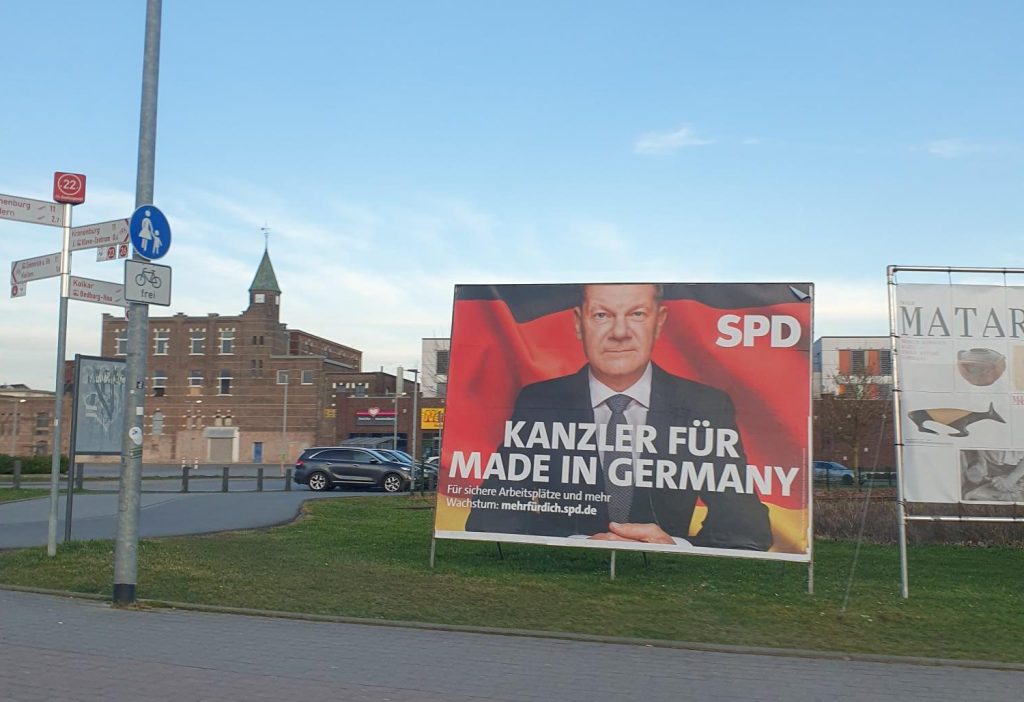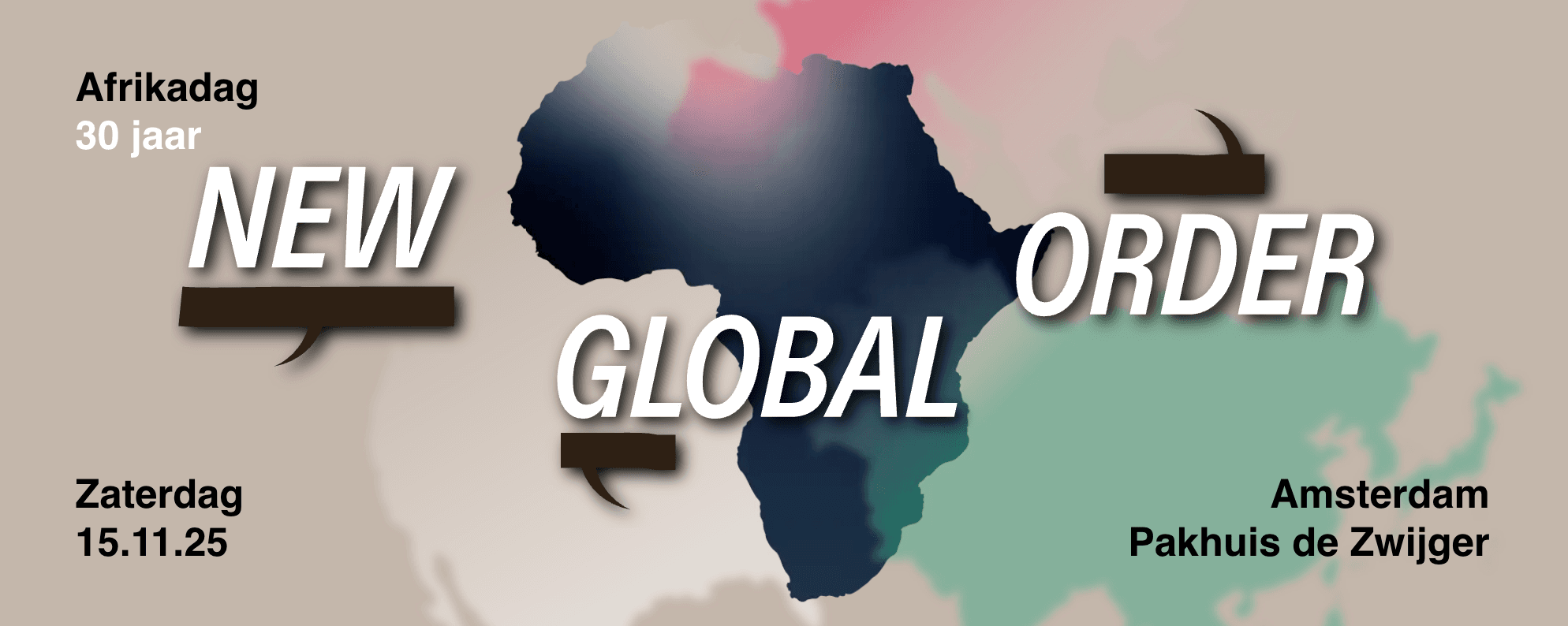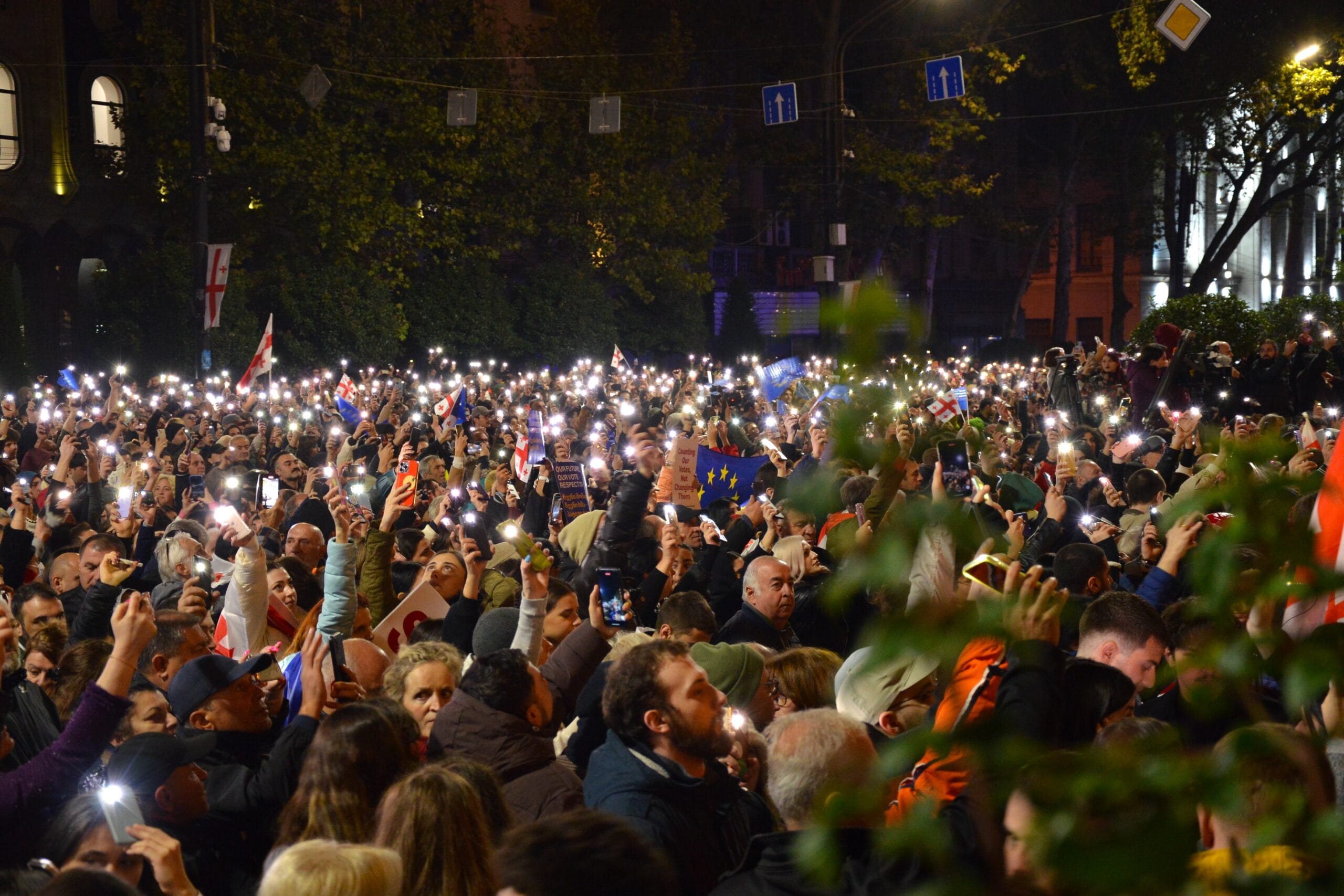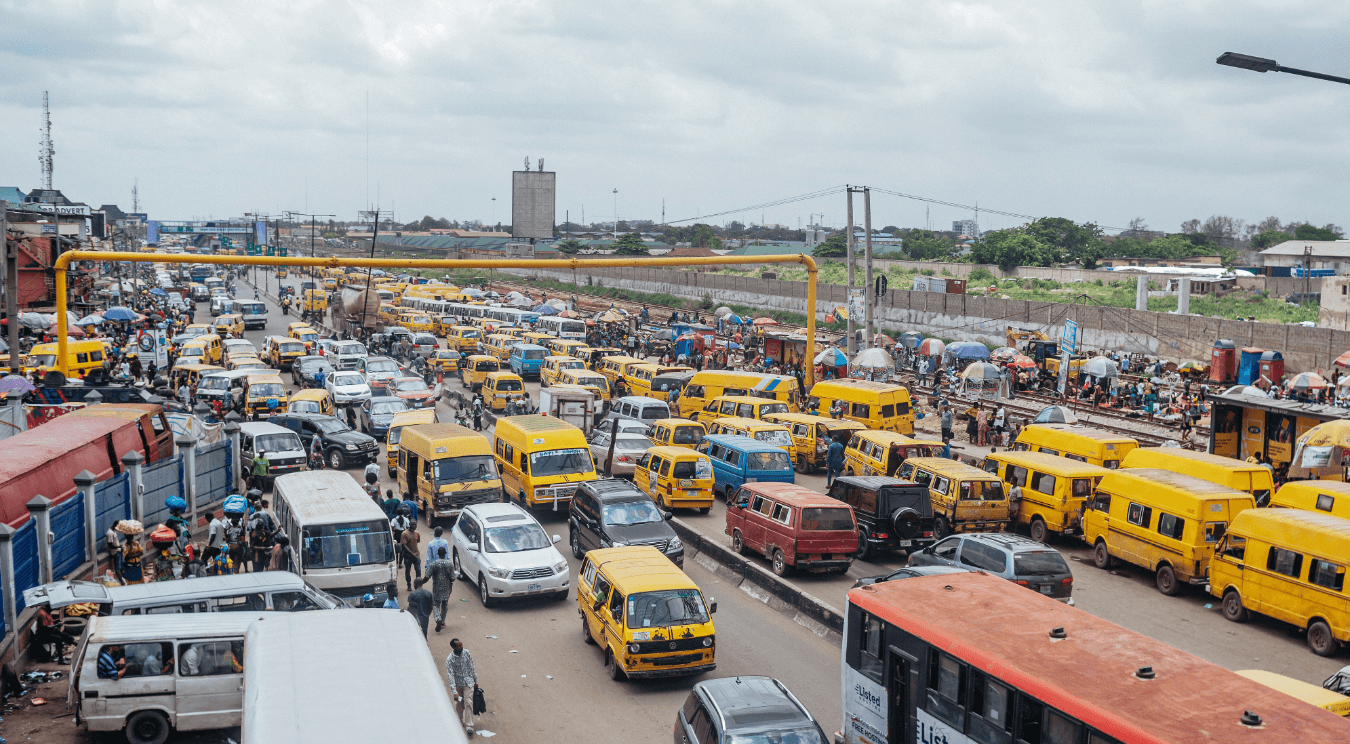Campaign sign in Kleve with current Chancellor Olaf Scholz (SPD)
German parliamentary elections took place on 23 February. As expected, the CDU/CSU emerged victorious, while the far-right AfD finished second. The SPD came third, a hard blow for Chancellor Olaf Scholz's party. "The worst result since World War II" causes disappointment and concern among the Social Democrats. The FMS visited colleagues in Kreis Kleve, just across the border from Nijmegen. "We are very disappointed by this result," it sounds.
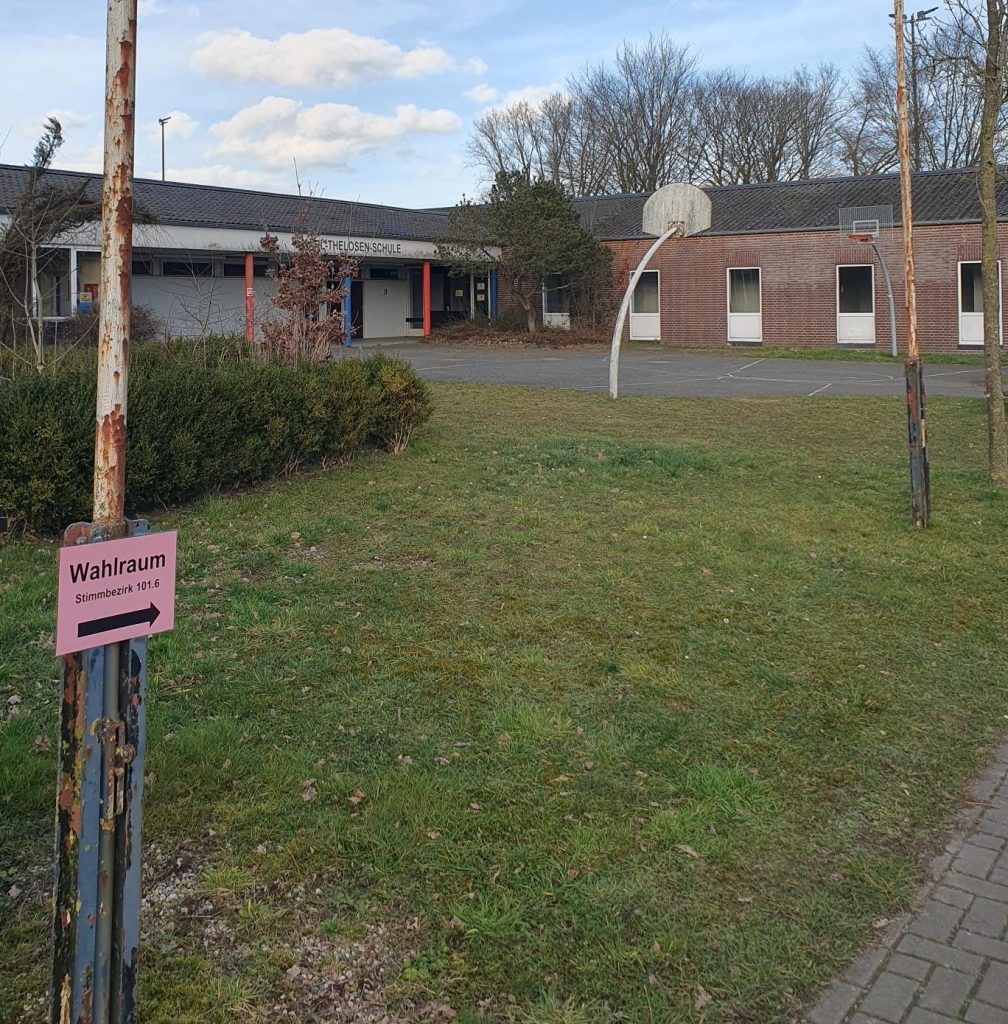
No one to be seen at the polling station in Keeken (own photo)
Niel, Keeken and Rindern
The visit begins on a farm in Niel, in the beautiful countryside of the Düffelward, the German counterpart of the Dutch Ooijpolder. Here lives Willem van het Hekke, a seasoned Labour Party and SPD member. "This is really black territory," says Willem. "The CDU always wins here. In many border regions they do well, and today will be no different."
Together, we drive to the only polling station in the village of Keeken. The place is quiet; there are only four polling officials present, who react cheerfully - and somewhat surprised by the Dutch visit. "The turnout is very good, both nationally and here. We are happy with that."
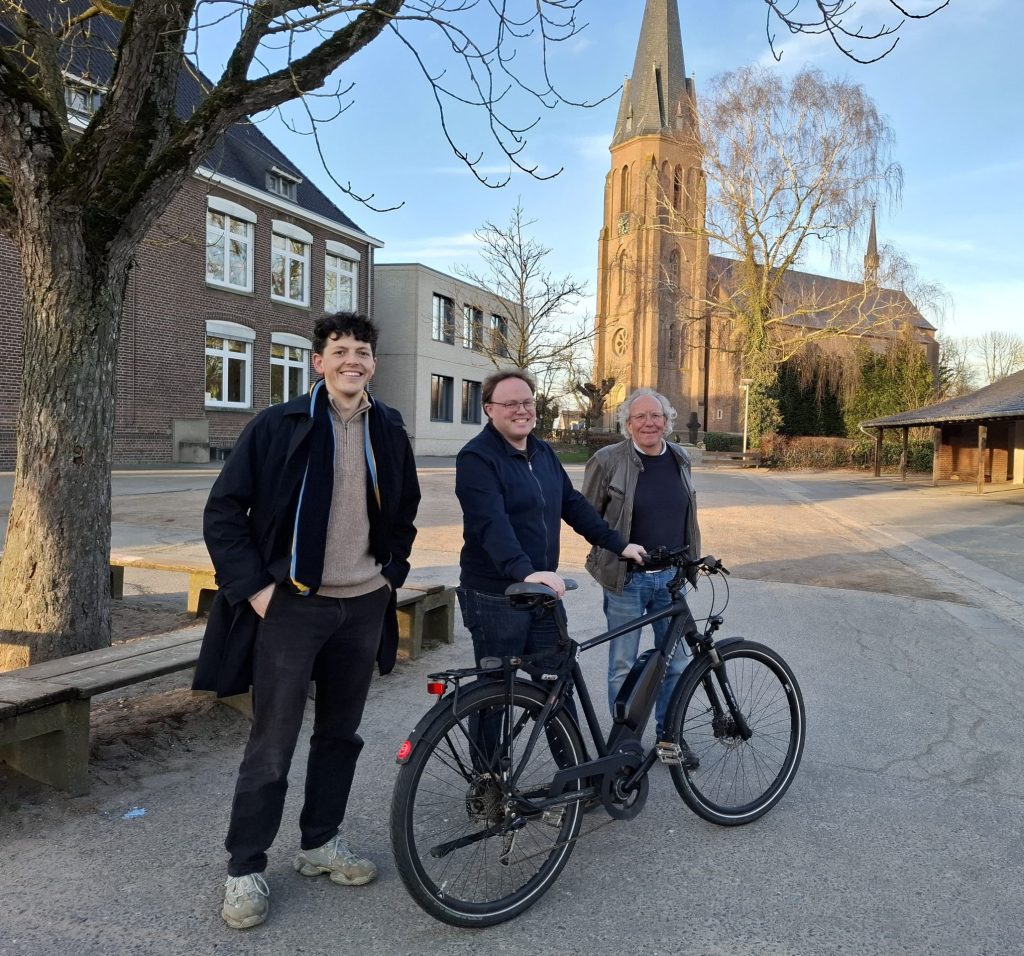
From left to right: Emiel Bongaerts, Niklas Lichtenberger and Willem van het Hekke in Rindern (own photo)
In the slightly larger town of Rindern, we meet Niklas Lichtenberger, councillor for the SPD in Kleve. In recent months, he campaigned intensively. "I am quite satisfied," he tells us. "We went past many doors and received positive reactions. I did not experience any negativity, although I hear that others, such as colleagues from the Greens, did."
"We should instead tell a positive story about migration in Germany"
It is busier at the polling station in Rindern. "This afternoon I was still queuing here myself," says Niklas. The polling officials present proudly confirm the high turnout: almost 90 per cent of eligible voters had already voted. In Germany, people can only vote at their own polling station, which makes it easy to measure turnout.
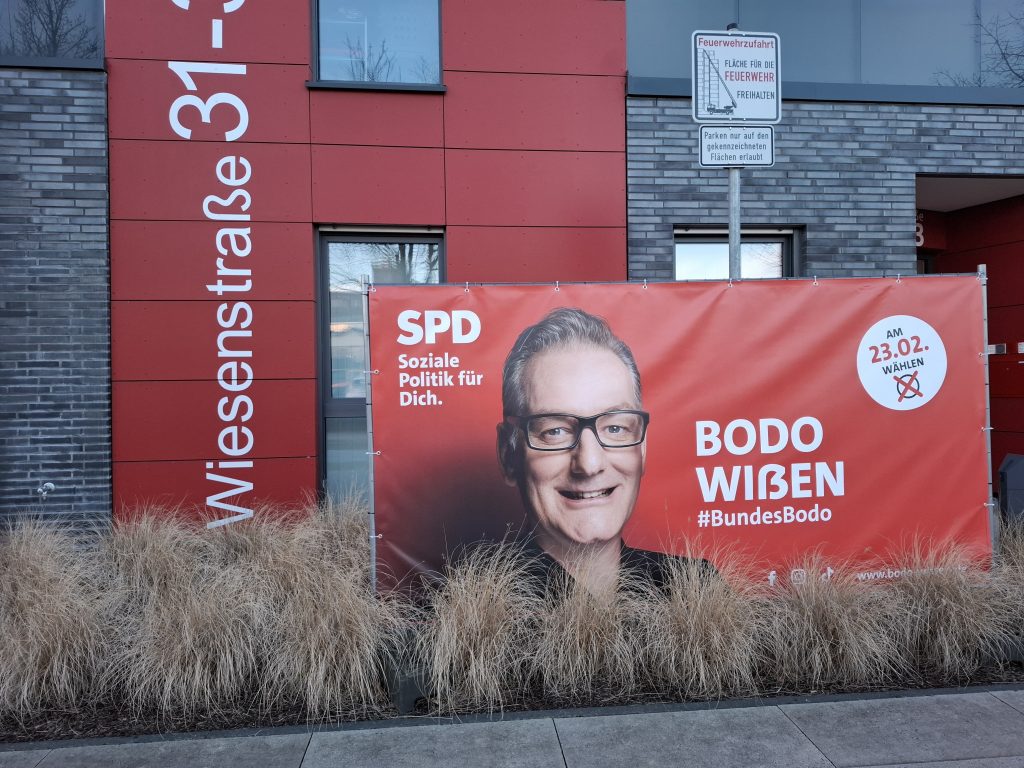
'BundesBodo' in Kleve (own photo)
Niklas says of the SPD candidate: "Our hopes are pinned on 'BundesBodo'." Bodo Wißen is indeed highly visible in Kleve constituency, but his chances of winning a seat in the Bundestag are slim, given the CDU's strong position in the region. "We tried to focus the campaign on economic themes and Scholz's successes in the last four years. But we did not succeed; the debate was almost entirely about migration. Whereas we need to tell a positive story about the importance of labour migration. Companies in this region are desperate for workers."
Kleve
We drive on to Kleve, a town of over 50,000 inhabitants. Preparations for carnival are already in full swing, but there is a different atmosphere at the office of SPD Kreis Kleve. About 20 party members are tensely following the ZDF and ARD election broadcasts. The room smells of curry sausage and cola.
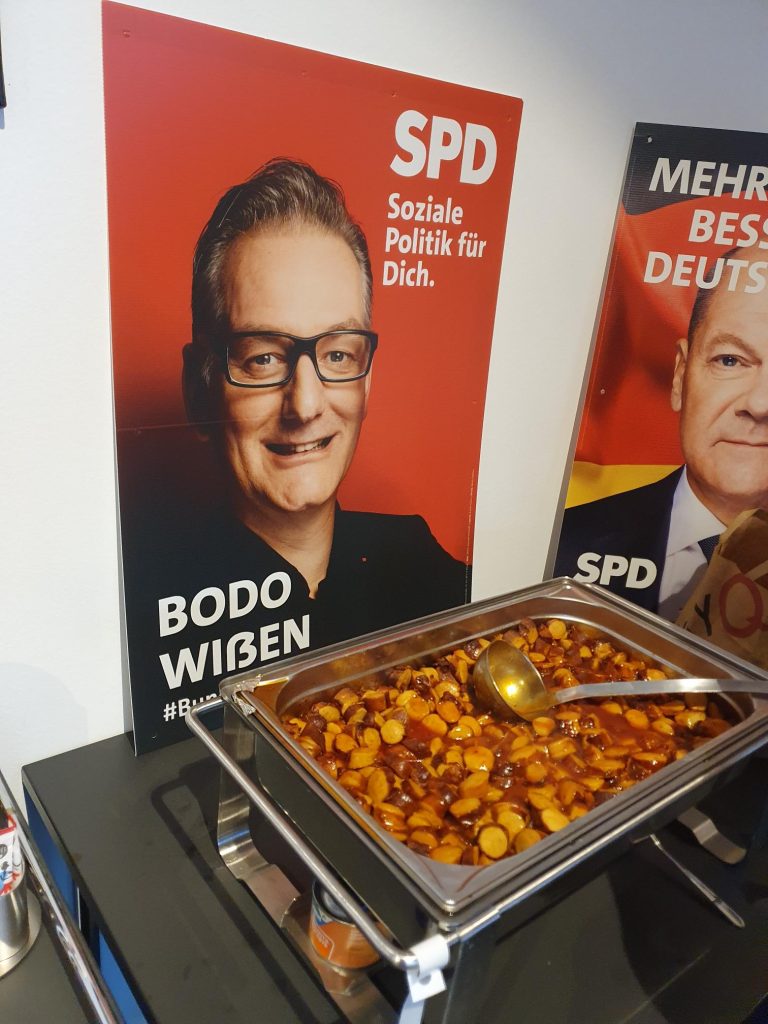
No shortage of currywurst at the SPD in Kleve (own photo)
"ZDF's exit polls are always slightly more favourable for us. It remains exciting," says Niklas. The tension is mainly in the performance of the FDP and BSW. If both parties reach the five per cent electoral threshold, a majority for CDU/CSU and SPD together in the Bundestag becomes a lot more difficult. "I don't think the CDU will govern with the AfD. In Niederrhein, CDU members would really not accept that."
"As soon as you give the far-right power, the gate is opened, just look at the Netherlands"
At 18:00, the first exit polls are announced. A collective sigh goes through the room. The SPD loses sharply, but according to expectations. The CDU does slightly less well than predicted. And will the FDP reach the electoral threshold after all? The thought of a coalition with the FDP and CDU generates little enthusiasm in the SPD office.
Appearing on TV is Alice Weidel, the AfD party leader. "Turn off the sound!" shouts an SPD member. But no one switches off. Weidel proclaims that "the people want the AfD to rule." Niklas shakes his head. "This is the only party in Germany that talks about 'the people' instead of 'the voters'. That makes it extra worrying."
"The middle parties should put differences aside and protect what really matters: our democracy"
The day ends at the official presentation of the election results at the Kleve County Hall. Representatives of all parties monitor the incoming votes, while the results from Kreis Kleve also trickle in. Thorsten Rupp, chairman of SPD Kreis Kleve, reacted with disappointment. "We had so hoped to push back the AfD further, but we did not succeed - and neither did the CDU."

SPD members in Kleve anxiously watch the first exit poll at 6pm (own photo)
Asked what will happen next, he remains cautious: "It is too early to speculate on that." Still, there is one clear message: "We should not be under the illusion that we should give the far-right power to show that they cannot govern. The Netherlands proves that doesn't work. As soon as middle parties leave room for anti-democratic parties, the gate is opened."
Battle back home
At the end of the evening, we speak to BundesBodo. He looks at the screen, where 20 out of about 300 polling stations counted still have the AfD above the SPD in Kreis Kleve. "If the AfD overtakes us here, that would be really 'trauersch'," he says. At the end of the evening, the SPD ended up comfortably in second place.
On the way back in the car, Willem remains combative. "Thousands of people come here to protest against extremism and anti-democratic parties. In Kleve there were 3,000 demonstrators the other day. That is an example for the Netherlands." He continues: "CDU and SPD should put aside their differences and work together on what really matters: protecting democracy and the rule of law. That is crucial for so many Germans."
It seems this realisation is starting to sink in. CDU leader Friedrich Merz is already hinting at a possible 'Grand Coalition' on Monday morning.
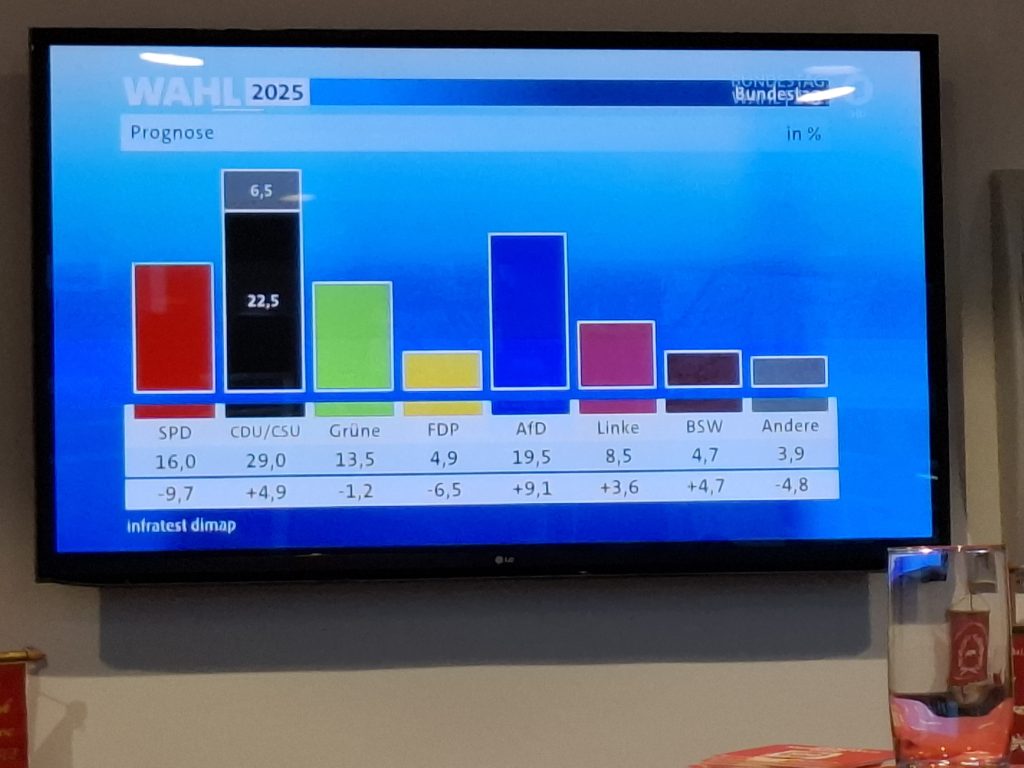
The first exit poll at 6pm, with the SPD at a loss (own photo)

